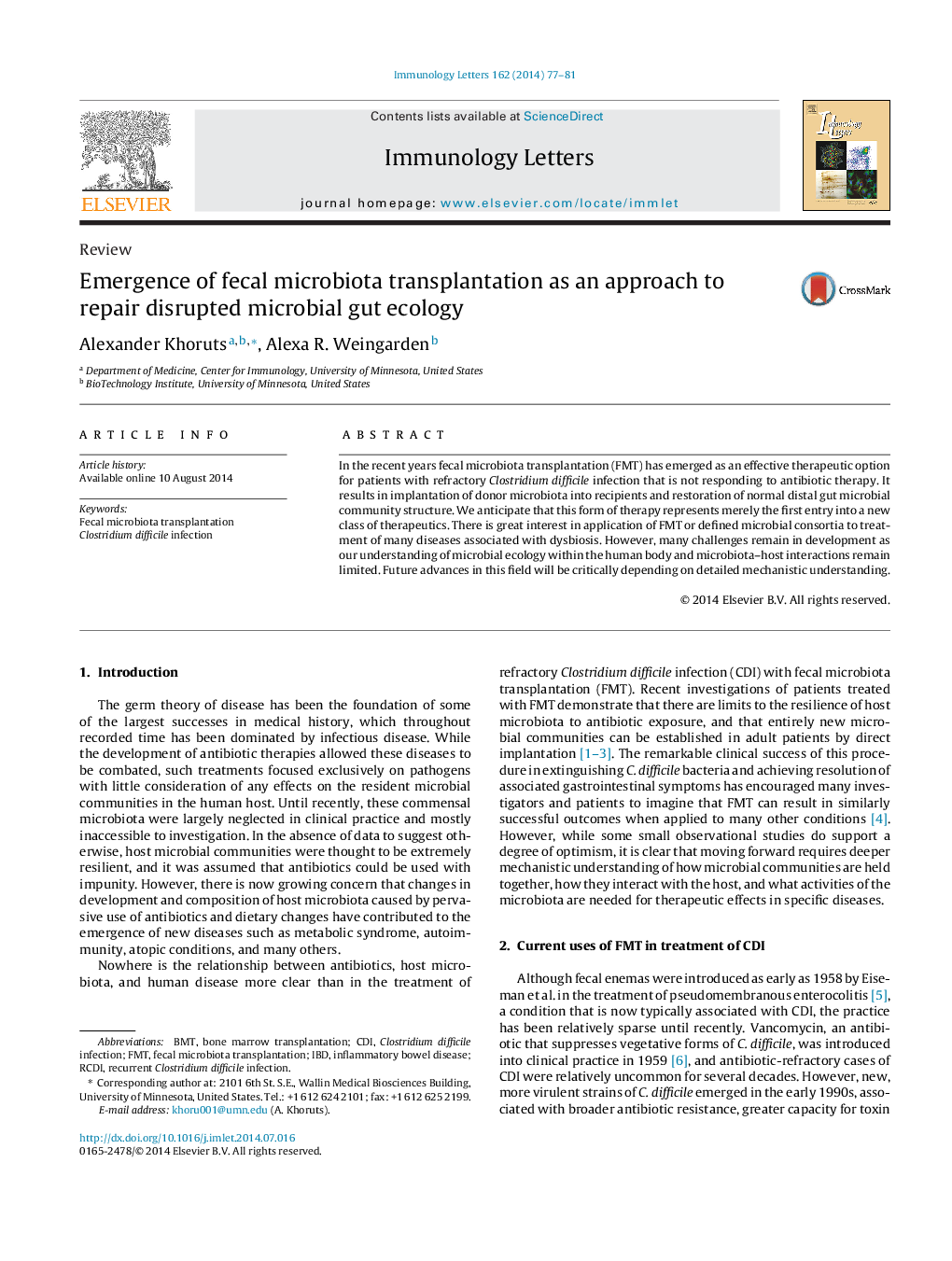| Article ID | Journal | Published Year | Pages | File Type |
|---|---|---|---|---|
| 3355385 | Immunology Letters | 2014 | 5 Pages |
•Fecal microbiota transplantation (FMT) is an effective therapy in recurrent Clostridium difficile infection (RCDI) that is refractory to standard antibiotic therapies.•FMT in treatment of RCDI results in prompt and long-term implantation of the donor microbial community and restoration of normal gut ecology.•Multiple mechanisms may account for how FMT controls RCDI, including immune-mediated colonization resistance.•Mechanistic understanding will be required in development of next generation microbiota therapeutics, which may include FMT or defined microbial consortia.
In the recent years fecal microbiota transplantation (FMT) has emerged as an effective therapeutic option for patients with refractory Clostridium difficile infection that is not responding to antibiotic therapy. It results in implantation of donor microbiota into recipients and restoration of normal distal gut microbial community structure. We anticipate that this form of therapy represents merely the first entry into a new class of therapeutics. There is great interest in application of FMT or defined microbial consortia to treatment of many diseases associated with dysbiosis. However, many challenges remain in development as our understanding of microbial ecology within the human body and microbiota–host interactions remain limited. Future advances in this field will be critically depending on detailed mechanistic understanding.
